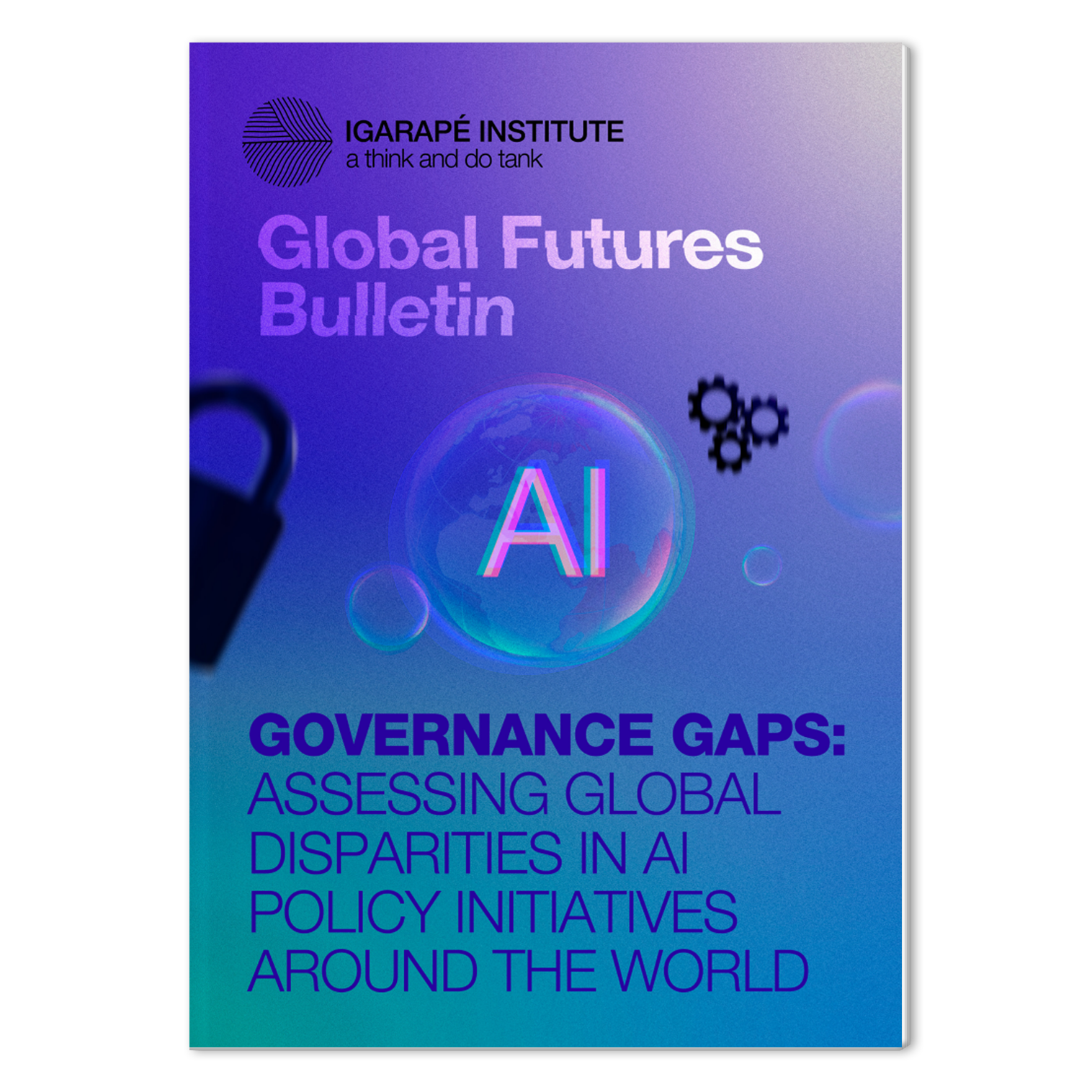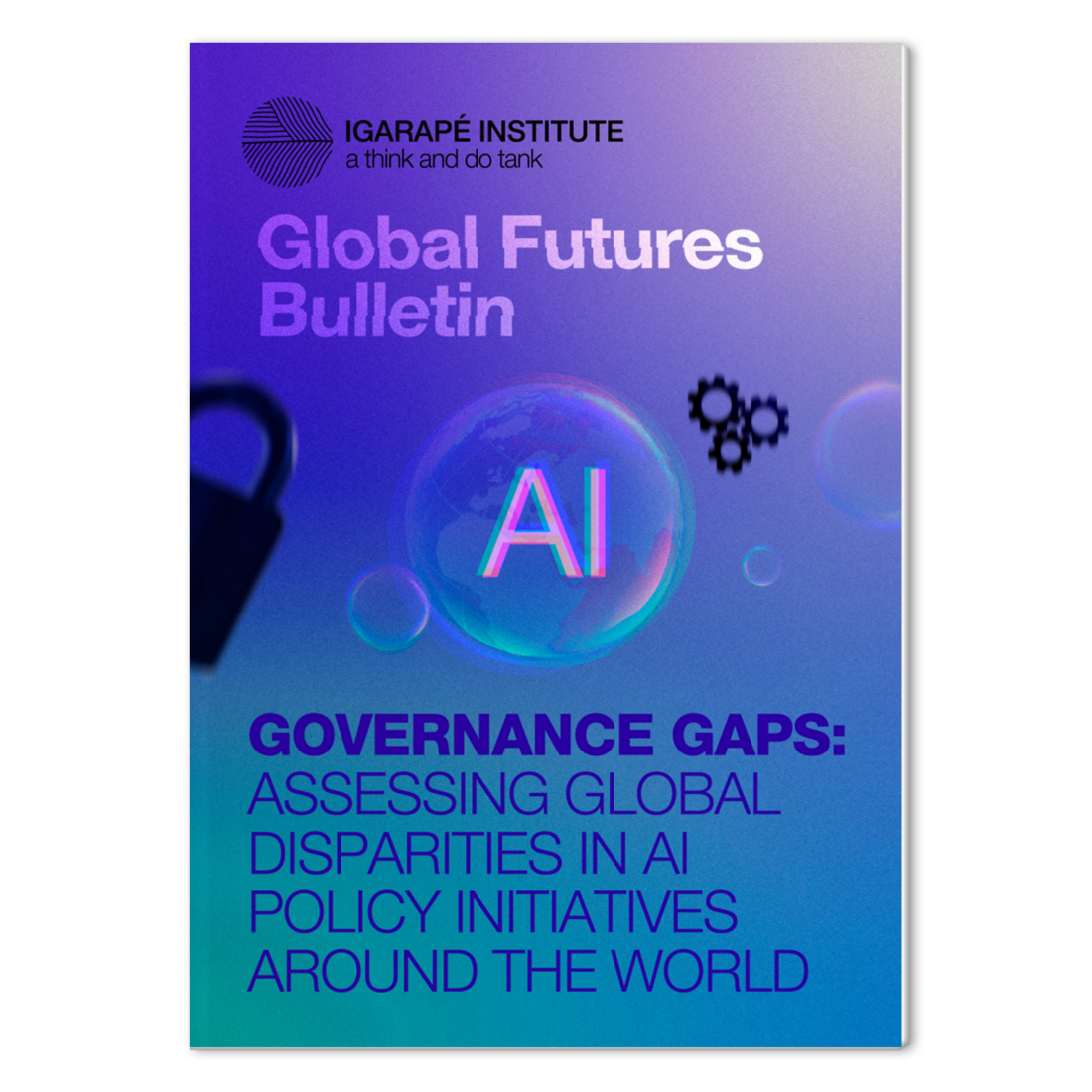Global Futures Bulletin: Governance Gaps: Assessing Global Disparities in Al Policy Initiatives Around the World

The rapid advancement of artificial intelligence (AI) is outpacing current global governance efforts aimed at ensuring its safety and alignment with ethical principles. While the United States, Europe, and China lead in the development of AI technologies and regulatory frameworks, most countries — particularly in the Global South — are struggling to keep pace. This dynamic risks deepening economic inequalities and concentrating power in a small number of countries and large technology companies.
Coordination and oversight at global, regional, national, and local levels are essential to ensure a fair distribution of AI’s benefits and to mitigate its risks. Governments, companies, and civil society organizations have been building an ecosystem of laws, policies, and standards to help shape the trajectory of AI development.
To map this evolving landscape, the Igarapé Institute used the AI Governance Ecosystem Database (AI-GED) — a global repository that measures and monitors AI policy instruments, with a focus on safety, alignment, and socioeconomic impact. As of 2024, the database aggregates 734 initiatives across 78 countries and regional organizations, classified by type, issuing entity, target audience, key principles, and other variables.
The AI-GED is available in an interactive visualization format, enabling users to explore how AI policies evolve over time and across different regions. The database also highlights the growing governance gap between the Global North and South: most initiatives are concentrated in high-income countries, with strong government leadership and notable private sector participation in upper- and middle-income contexts. Despite the diversity of actions, legally binding AI regulations remain limited worldwide.
The study also examines how socioeconomic factors influence the development of public policy and acknowledges the limitations of the database itself, including the need for continuous updates and the disparities in data access and transparency across countries and institutions, which may result in coverage gaps and reporting biases.
Read the publication
Learn more about this topic in the Global Futures Bulletin: Responsible Artificial Intelligence Efforts In the Global South and in the study Responsible and Safe AI: A Primer for Policymakers in the Global South



